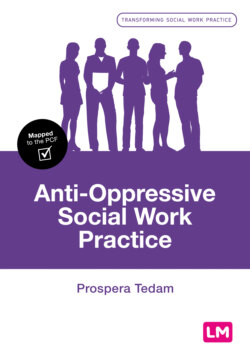Читать книгу Anti-Oppressive Social Work Practice - Prospera Tedam - Страница 73
На сайте Литреса книга снята с продажи.
Commentary
ОглавлениеThe telephone discussion above between a social worker and a parent gives us the opportunity to reflect on the power game being played out here. Whether consciously or unconsciously, the social worker sends the message that she holds the power of disclosure – she cannot tell the mother about who made the referral. She then tells her to cancel her appointment to see her father in a care home and then drops the term ‘investigation’ into the conversation, which immediately causes the mother to become anxious. Finally, the social worker cautions the mother to ensure that the children are home when she arrives. This phone discussion is only one example of power displayed at the start of involvement with a family in the area of child protection. The formal investigation, assessment and intervention stages will carry varying levels of use of power by social workers, other professionals and, in some instances, service users and families. For example, Bernard and Greenwood (2019) found that there was a power differential when working with issues of neglect with affluent families in England. This was because social workers were more likely to feel intimated by social class, educational and career achievements of the service users, thus causing them to incorrectly assess the parent–child circumstances. This indicates therefore that the issues of power are not only a concern that service users should have about social workers, but also one that social workers should consider carefully with regard to their service users.
